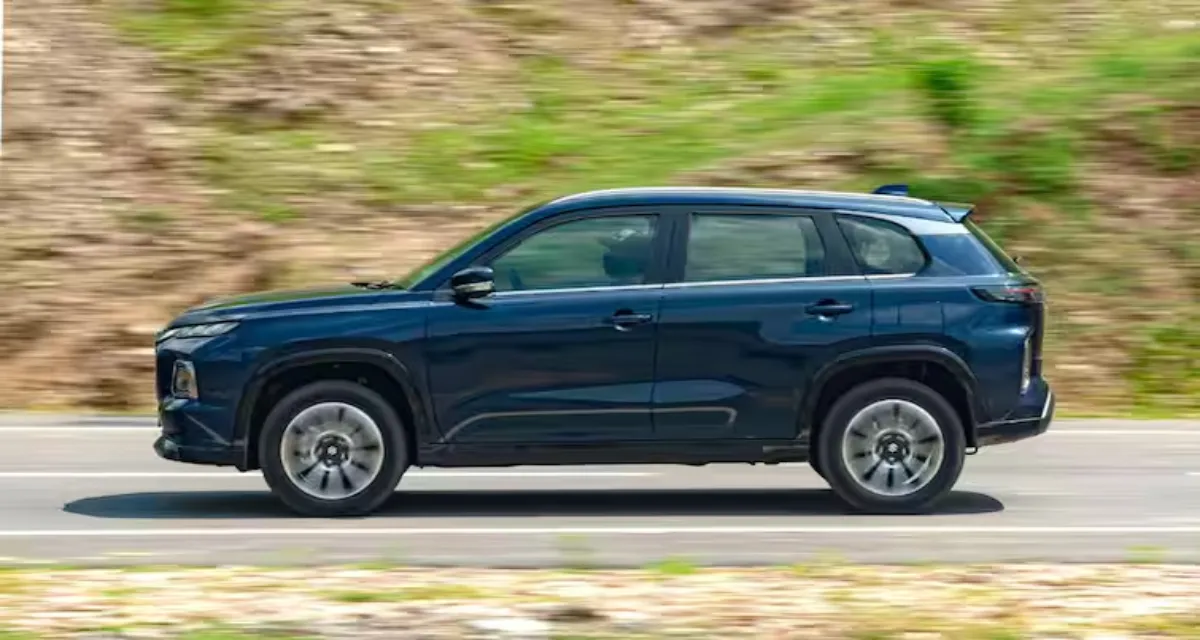

Maruti Suzuki and Toyota have successfully capitalized on a significant policy win in Uttar Pradesh, where the state government’s tax waivers on hybrid vehicles have created a favorable environment for increased sales. Following intense lobbying efforts, these automakers are now pushing their dealerships to meet ambitious sales targets, aiming to maximize the benefits of the tax exemptions.
The tax waiver scheme introduced by the Uttar Pradesh government provides significant financial relief for buyers of hybrid cars, making them a more attractive option. For instance, the luxury Toyota Vellfire now comes with a tax saving of approximately ₹13,09,400, while the Toyota Camry sedan sees a reduction of ₹4,31,600. These savings have already started to shift consumer interest toward hybrid vehicles, as both companies report a notable rise in showroom inquiries.
In response to the growing interest, Maruti Suzuki and Toyota have launched aggressive marketing campaigns across digital and traditional platforms. An Instagram ad from Sunny Toyota, a dealership in Lucknow, promotes the offer with the tagline: "Save big .... Order now and get your hybrid vehicle delivered right at your doorstep," as reported by Reuters. This strategic push is part of a broader effort to boost hybrid sales in the region, leveraging the financial incentives provided by the state government.
While Maruti Suzuki and Toyota are capitalizing on this opportunity, the move has sparked concerns among their competitors. Companies like Tata Motors, Mahindra & Mahindra, and Hyundai are worried that the tax waivers for hybrids could negatively impact the sales of pure electric vehicles (EVs). These companies lobbied to reverse the decision made in July, fearing that other states might implement similar measures, but their efforts were unsuccessful.
Toyota's focus on hybrids over EVs is well-documented, with the company often citing concerns over the inadequate charging infrastructure and the high costs associated with electric vehicles. This strategy seems to be paying off in markets like Uttar Pradesh, where hybrids are seen as a more accessible alternative to the still-developing EV sector. Maruti's Executive Director for Corporate Affairs, Rahul Bharti, noted, "Showroom enquiries have nearly doubled since the benefits have been affected for hybrids," according to Reuters.
Dealerships across Uttar Pradesh are feeling the pressure to meet stringent sales targets. "We have been asked to sell a minimum of 250 cars in a month. There is a lot of pressure. We are trying to shift all sales to hybrids," a Maruti salesperson told Reuters. The push has already resulted in a significant increase in hybrid car sales. Praveen Saxena, a sales manager at a Toyota showroom in Kanpur, reported a 50% surge in hybrid sales following the announcement of the tax waivers. He advised customers to act quickly, cautioning that "No one knows how long the scheme would run."
The impact of these efforts is evident on the ground, with more consumers opting for hybrid vehicles. For example, K.S. Dhatwalia, a former Indian government official, recently purchased a Toyota Hyryder hybrid, citing both environmental benefits and the attractive tax savings. "Hybrids are less polluting and there was an additional tax saving too," Dhatwalia told Reuters, reflecting a growing sentiment among Indian car buyers.
The tax waiver scheme in Uttar Pradesh has provided a significant boost to hybrid car sales, benefiting both Maruti Suzuki and Toyota. As these companies continue to push their hybrid offerings, the long-term impact on the Indian automotive market remains to be seen. Will other states follow suit, and how will this influence the future of electric vehicles in India? Only time will tell.
Also Read: